 The ability to support an argument from evidence crosses STEM disciplines. This Spotlight highlights DRK-12 research and products that support the STEM practice of argumentation in math and science classrooms. In his blog post, Jonathan Osborne makes the case why argumentation is a powerful tool for student learning in science classrooms.
The ability to support an argument from evidence crosses STEM disciplines. This Spotlight highlights DRK-12 research and products that support the STEM practice of argumentation in math and science classrooms. In his blog post, Jonathan Osborne makes the case why argumentation is a powerful tool for student learning in science classrooms. - Argument in Science Education | Blog by Jonathan Osborne
- Featured Projects
- A Partnership to Adapt, Implement and Study a Professional Learning Model and Build District Capacity to Improve Science Instruction and Student Understanding (PIs: Hilda Borko and Emily Weiss)
- CAREER: Designing Meaningful Learning Experiences for Statistical Literacy in Secondary Mathematics (PI: Travis Weiland
- Developing a Generalized Storyline that Organizes the Supports for Evidence-based Modeling of Long-Term Impacts of Disturbances in Complex Systems (PI: Steven McGee)
- Online Practice Suite: Practice Spaces, Simulations and Virtual Reality Environments for Preservice Teachers to Learn to Facilitate Argumentation Discussions in Math and Science (PI: Jamie Mikeska)
- Related Resources
Blog: Argument in Science Education
Jonathan Osborne, Professor of Science Education, Stanford Graduate School of Education
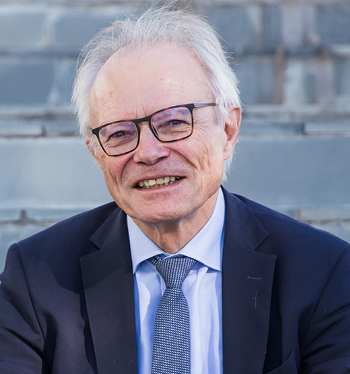
Argument is central to all reasoning. Life is a constant attempt to make sense of one event after another – whether it is why your football team lost, why Walt Whitman is considered a great poet, or whether you should buy an electric car. In all cases, arguments will be made for disparate views which will be supported by reasoning or evidence.
In the case of science, argument is central because science is fundamentally about developing explanatory models of the material and living world. How good they are depends on making an argument for why one model is a better explanation than another. Why, for instance, is the explanation that day and night is caused by a spinning Earth a better explanation than...Read more.
Featured Projects

A Partnership to Adapt, Implement and Study a Professional Learning Model and Build District Capacity to Improve Science Instruction and Student Understanding (Collaborative Research)
PIs: Hilda Borko, Emily Weiss; CoPIs: Jonathan Osborne, Craig Strang
STEM Disciplines: Science and Engineering
Grade Level(s): Grades 3-5
Project Description: The IPT project was a six-year research practice partnership to build the capacity of teachers to teach scientific argumentation by developing sustainable teacher leadership. Drawing upon our previous work, the IPT professional learning program was based on the successful and effective PRACTISE model, that includes a summer institute, academic year follow-up sessions, and classroom video reflection. The goals of IPT were twofold: first was to develop elementary teachers’ capacity to teach argumentation from evidence in science; and second to develop a cadre of teacher leaders to sustain effective science professional learning experiences in the district after the project had finished. Both phases of the project were impacted by the pandemic and the closure of schools but much of value was still learnt.
What do you find students/teachers are struggling with when using argumentation in the classroom? Giving students the time to discuss can be challenging – especially if it is a whole class discussion. The two major challenges are ensuring that all students get a chance to express their ideas and then supporting an argumentative discussion. This requires a basic repertoire of moves that support talk such as rephrasing student responses, juxtaposing one student’s response with another, and encouraging students to engage in respectful, evidence-based critique, disagreement and agreement. It also requires having a good grasp of the science being discussed. This helps teachers make choices about which student contributions to pursue in the discussion.
Our project helps teachers by emphasizing the asking of good open-ended questions to initiate a discussion, pressing students to elaborate their ideas and looking for opportunities to link one idea to another. All of this has been done in a context of the kind of science that is addressed in elementary grades. In the first year, the project provided a weeklong workshop and six follow up days initially to support teachers. Teachers recorded videos of their own practice and shared these to discuss how they approached running whole class discussions and addressing the challenges they faced.
Initial Findings Related to Work with Argumentation: The project was based on the findings of the PRACTISE project which showed that it was possible to significantly improve elementary teachers’ ability to use and support argumentation in science. The findings of this project were published in a leading journal: Osborne, J. F., Borko, H., Fishman, E., Gomez Zaccarelli, F., Berson, E., Busch, K., Reigh, E., & Tseng, A. (2019). Impacts of a practice-based professional development program on elementary teachers’ facilitation of and student engagement with scientific argumentation. American Educational Research Journal, 56(4), 1067-1112.
Similar findings have been obtained working with teachers in the first year of the project.
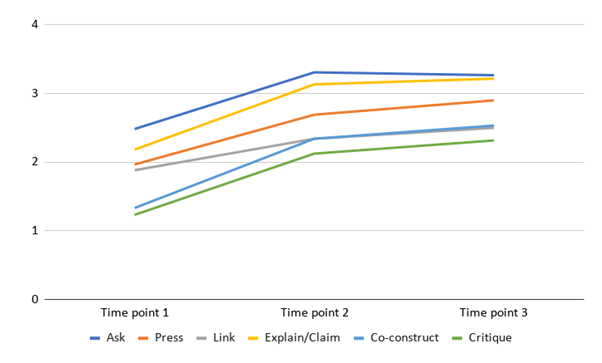
Teachers in the IPT professional learning program improved their facilitation skills (Asking open-ended questions, Pressing for elaboration, and Linking student contributions), and students improved their discourse skills (Explaining their reasoning, Co-constructing ideas with other students, and Critiquing others’ arguments).
Product(s): Information about all of the projects’ products and materials can be found on the project website which is still under development at the time of writing (March 2023): https://ipt.lawrencehallofscience.org/
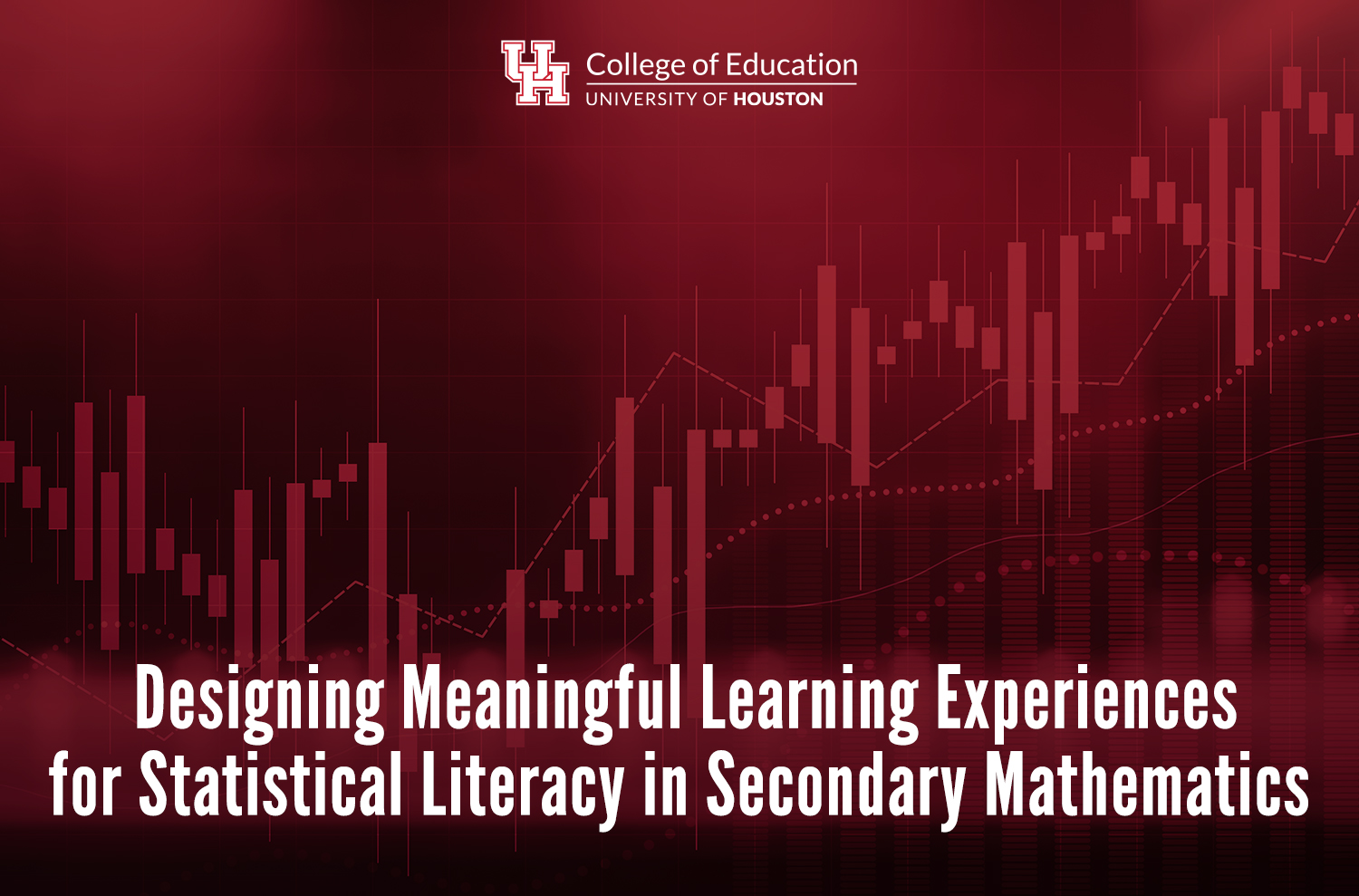
CAREER: Designing Meaningful Learning Experiences for Statistical Literacy in Secondary Mathematics
PI: Travis Weiland
STEM Disciplines: Statistics and Mathematics
Grade Level(s): High School Teachers
Project Description: The goal of the project is to investigate how to support secondary mathematics teachers in developing their own statistical literacy through data investigations of sociopolitical issues and translating that literacy into classroom practice. The focus is on designing and refining an empirical theory of change for supporting the development of teachers’ statistical literacy. In this case a critical statistical literacy, which includes how people learn about statistics in ways that are grounded in their experiences and understanding of the world. The project will use professional learning communities (PLC) for teachers to learn about statistical literacy and develop learning experiences for their students. The research will focus on investigating three main questions:
- How do secondary mathematics teachers develop a critical statistical literacy for doing and teaching statistics through a sustained PLC?
- How does the design of the PLC support secondary teachers’ development of a critical statistical literacy for doing and teaching statistics?
- How does the participation of secondary mathematics teachers in a sustained PLC, facilitate the transfer of their literacy developed while situated in a PLC, into the opportunities they create for their students to learn statistics situated in their classrooms?
The data collection includes quantitative and qualitative sources to help create descriptive cases of each teacher’s development and together the case of the PLC as a whole. These include video analysis of the professional learning communities, measures of teachers’ statistical knowledge, and evidence from classroom interactions with students.
What do you find students/teachers are struggling with when using argumentation in the classroom? We find that teachers are often good at calculating statistical measures like mean or standard deviation, but where they can struggle at times is often with what those measures describe and how they can be used to make sense of a statistical question to investigate a meaningful issue. For example, when teachers interpret the data analysis they carry out in statistical investigations, they often focus on making descriptive statements and don’t always answer the statistical question they are investigating or discuss what the analysis helps them to understand about the context they are investigating. We are hoping to address this issue by spending time with the teachers participating in the project explicitly focusing on how to communicate with data. We have been working with a data journalist on our advisory board to draw from work outside of education to help us think about communicating with data. We are hoping to design tools to support teachers in creating and evaluating data-based arguments and supporting their students to do so as well.
Initial Findings Related to Work with Argumentation: We are in the design and pilot stages of the project currently where one of the main findings we have so far is that we have found very little past work done on what constitutes a data-based argument and how students or teachers learn how to develop data-based arguments. There has been some work in statistics education particularly in statistical literacy around evaluating the data-based arguments of others but much of the work seems to have focused on students as consumers of data-based arguments not as producers. We are currently working on reviewing methodological literature on statistical enquiry and quantitative research to consider how we can translate practices from the discipline into K-12 educational environments and develop frameworks and tools to support teachers in making and evaluating data-based arguments for themselves and in their own teaching.
Product(s):
Presentations
- Weiland, T., Sundrani, A.*, & Cole, S.* (2023, February). Designing learning experiences for developing a critical statistical literacy. Individual session presented at the 27th Annual Conference of the Association of Mathematics Teacher Educators, New Orleans, United States.
- Cole, S.* Sundrani, A.*, & Weiland, T. (2023, February). Using CODAP to investigate sociopolitical issues in secondary mathematics classrooms. Workshop presented at the 27th Annual Conference of the Association of Mathematics Teacher Educators, New Orleans, United States.
- Weiland, T., Sundrani, A*. (2022, September). Towards a framework for developing a critical statistical literacy. Session presented at the 11th International Congress of Teaching Statistics. Rosario, Argentina.
Publications
- Weiland, T., Sundrani, A*. (2022). Towards a framework for developing a critical statistical literacy. In S. Peters (Eds.), Proceedings of the 11th International Congress of Teaching Statistics. Rosario, Argentina. http://doi.org/10.52041/iase.icots11.T1C3
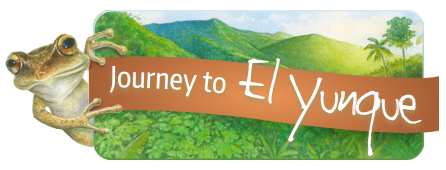
Developing a Generalized Storyline that Organizes the Supports for Evidence-based Modeling of Long-Term Impacts of Disturbances in Complex Systems
PI: Steven McGee
STEM Disciplines: Life Science, Ecology
Grade Level(s): Middle School
Project Description: The Journey to El Yunque curriculum introduces students to disturbance ecology, with a focus on both ecosystem resilience and ecosystem change. Each page is beautifully illustrated by Puerto Rican artist Robert Casilla to connect students with Puerto Rican culture as well as help generate curiosity and interest as students move through the curriculum. Students engage with interactive models of population dynamics that are based on real-world data gathered by our partners at the Luquillo Long-Term Ecological Research program in Puerto Rico. The data from these models serve as evidence for students’ scientific arguments about the impact of hurricanes on specific species in the rainforest. While many students initially see hurricanes as threats to rainforests, the exploration of models of limiting factors and population dynamics helps students understand that hurricanes can temporarily change which organisms are favored for survival, thereby supporting increased biodiversity in the rainforest. For example, the coqui frog benefits from hurricanes because the increase in debris on the forest floor provides additional shelter from predators. However, if hurricanes become too frequent and too intense, rainforest ecosystems may pass a “tipping point,” leading to irreversible change. By using these models, students can take on the role of legitimate peripheral participants in the community of practice of rain forest ecology. The models enable students to grapple with complex and cutting-edge questions and are regularly updated based on new findings in rainforest disturbance ecology. This project is a collaboration among The Learning Partnership, University of Puerto Rico, and Northern Illinois University.
What do you find students/teachers are struggling with when using argumentation in the classroom? In the context of extended inquiry-based units that last for many weeks, students often have difficulty keeping track of evidence across lessons. At the end of the unit, students have difficulty sorting evidence that support or refute specific claims and using reasoning to explain how the evidence supports their claim. To address these areas of struggle, we have developed two tools (see Easley, McGee et al., 2021, in press).
The first tool is the investigation steps chart, which uses the NGSS storyline routines to provide support for notetaking by scaffolding students in collecting evidence across multiple lessons. Before each lesson, students use the Investigation Steps Chart on (1) their subgoal for the investigation (the investigation question), (2) resources that can be used to achieve their subgoal (available materials), and (3) strategies for reaching their subgoal (scientific practices). After each lesson, students use the Investigation Step Chart to consider (4) what they figured out that helped move them toward their overall goal and (5) what questions remain. These two final steps help students to keep track of what they have figured out through participation in NGSS storyline routines.
The second tool is the evidence sorter tool, which is designed to prepare students to effectively construct a written argument based on what they have learned during the unit. Subgoals include supporting students to: (a) organize all evidence collected during the unit, (b) determine which claim is best supported by the evidence, and (c) engage in reasoning to connect evidence to the chosen claim.
Initial Findings Related to Work with Argumentation: Research on implementation of the argumentation scaffolding tools has found that it is important for teachers to support students in connecting reasoning to their evidence at the end of each lesson rather than wait until the end of the unit to incorporate reasoning. The extent to which students viewed the purpose of the unit as learning disciplinary core ideas, they were less likely to include evidence in their final argument (Rupp et al., 2021). The extent to which students combined reasoning with evidence as they were collecting evidence predicted the extent to which they supported their evidence with reasoning in their final argument (Rupp et al., 2022).
Product(s):
Products for Practitioners:
- elyunque.net (addresses NGSS PEs: MS-LS2-1 and MS-LS2-4); teacher materials can be requested from demo@elyunque.net
- Videos about the science behind Journey to EL Yunque: https://www.youtube.com/c/ElyunqueNet/
Researcher Products:
- Easley, K., McGee, S., McGee-Tekula, R., Britt, A., Rupp, K, & Higgs, K. (2021, June 7-11). Designing educative supports for scientific argumentation: a case study of DBR before and during the pandemic [Poster presentation]. International Society of the Learning Sciences 2021 Online Conference.
- Easley, K.M., McGee, S., & McGee-Tekula, R., Britt, M.A., Rupp, K., & Higgs, K. (in press). Designing educative tools for scientific argumentation: A case study of DBR before and during the pandemic. Learning, Design, and Technology.
- Easley, K.M., Zimmerman, J.K., McGee, S., & McGee-Tekula, R. (in press). Scientific communities of practice: K12 outreach model around organism responses to repeated hurricane disturbances. Ecosphere.
- McGee, S. & Zimmerman, J.K. (2016). Taking students on a Journey to El Yunque. International Journal of Designs for Learning, 7(1), 86-106. https://doi.org/10.14434/ijdl.v7i1.19429
- McGee, S., Durik, A. M., and Zimmerman, J. K. (2015, April 11-14). The Impact of Text Genre on Science Learning in an Authentic Science Learning Environment [Paper presentation]. 2015 National Association of Research in Science Teaching Annual Meeting, Chicago, IL. https://doi.org/10.51420/conf.2015.2
- McGee, S., Durik, A. M., Zimmerman, J. K., McGee-Tekula, R., & Duck, J. (2018). Engaging Middle School Students in Authentic Scientific Practices Can Enhance Their Understanding of Ecosystem Response to Hurricane Disturbance. Forests 9(10), 658. https://doi.org/10.3390/f9100658
- Rupp, K.E., Higgs, K., Britt, M.A., McGee, S., McGee-Tekula, R., Easley, K.M., Steffens, B., & Durik, A. M. (2021, June 7-11). How does students' perception of the main point of a unit relate to the quality of the final argument? [Poster presentation]. International Society of the Learning Sciences 2021 Online Conference.
- Rupp, K.E., Higgs, K., Britt, M.A., McGee, S., McGee-Tekula, R., & Easley, K.M. (2022, March 27-30). Scaffolding Scientific Argumentation in a Science Inquiry Unit [Poster presentation]. National Association of Research on Science Teaching annual meeting. Vancouver, Canada.
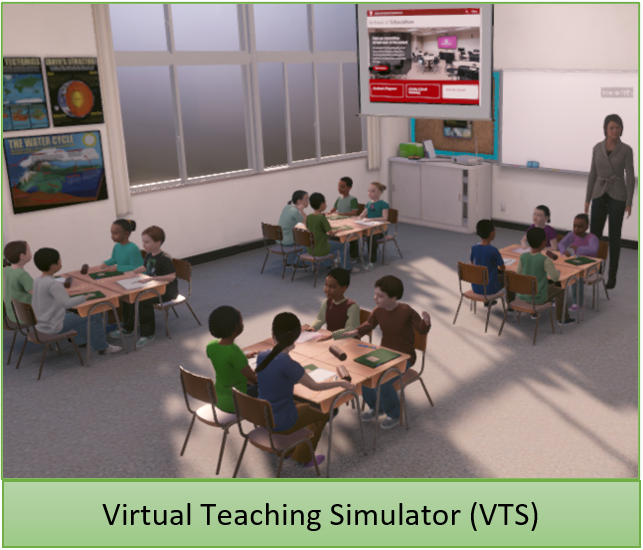
Online Practice Suite: Practice Spaces, Simulations and Virtual Reality Environments for Preservice Teachers to Learn to Facilitate Argumentation Discussions in Math and Science
PI: Jamie Mikeska; CoPIs: Heather Howell, Pamela Lottero-Perdue, Meredith Park Rogers, and Justin Reich
STEM Disciplines: mathematics (elementary level: fractions; secondary level: proportional reasoning) and science (elementary level: conservation of matter; secondary level: heat transfer)
Grade Level(s): Elementary and secondary (grades 3-8)
Project Description: Learning to teach demands that preservice teachers have robust, authentic, and consistent opportunities to practice engaging in the work of teaching—ideally across different contexts, with diverse student populations, and for varied purposes. Although traditional field experiences in K-12 classrooms are critical to supporting preservice teachers’ learning, it is difficult to scaffold appropriately to ensure the learning experience is robust. Preservice teachers often do not have access to opportunities to rehearse components of teaching, to do so in a safe environment that is not consequential for themselves or students, or to try out a lesson. Our project is designed to directly address this challenge by developing a set of scaffolded, practice-based activities to support preservice teachers in one core teaching practice: facilitating argumentation-focused discussions. The practice-based activities include: (a) focused practice spaces to engage preservice teachers in eliciting and responding to students’ content-focused ideas and interactions, (b) performance-based tasks where preservice teachers practice facilitating discussions with five student avatars in a simulated classroom, and (c) a virtual reality environment that allows preservice teachers to become immersed in the classroom as an avatar. This final practice space supports practicing the shift from small group discussion to whole group discussions. We integrated the full online practice suite within elementary and secondary mathematics and science methods courses at multiple universities across the U.S. and are studying preservice teachers’ learning and how teacher educators use and adapt these tools within varied contexts.
What do you find students/teachers are struggling with when using argumentation in the classroom? While most of the preservice teachers that we work with recognize and value the importance of student ideas, they sometimes struggle to leverage students’ thinking in ways that support student-centered sensemaking. When facilitating a discussion in the simulated classroom on a mathematics or science topic, our research has shown that the preservice teachers do provide opportunities for the students to construct and defend their initial arguments using content-appropriate justifications. However, they may struggle to do so consistently across the full discussion or across the full set of students. In addition, our research has suggested that preservice teachers sometimes overlook the importance of providing students with opportunities to use their justifications or offer counter arguments or rebuttals to persuade one another during mathematics or science discussions. During the discussions we have noticed that the preservice teachers do not always encourage students to change, adjust, or modify their initial thinking. Additionally, we observed that it is a challenge for preservice teachers to facilitate discussions with multiple student avatars such that students talk to one another (not just to the teacher).
Initial Findings Related to Work with Argumentation: Pilot findings across all grade levels and both content domains reflect teacher educators’ and preservice teachers’ strong endorsement of the approach as a valuable learning experience. Of note, preservice teacher learning includes the type of concrete learning one would expect from practice-based activities, such as learning strategies for eliciting student thinking and encouraging student interaction. However, it also includes significant learning about argumentation-focused discussion, including learning what it is and why it is important. In our preliminary analysis of the preservice teachers’ simulated discussions, we find the preservice teachers do well with attending to students’ ideas and using them to drive the conversation forward. Additionally, they use the language of argumentation in their discussion with students but tend to experience more difficulty in connecting the science content, building a coherent storyline for the discussion, and addressing misconceptions about the content. Finally, we have observed a range of ways that the teacher educators in our project integrated the simulations into their classrooms, prepared the preservice teachers in their classes for the simulations, and debriefed after those activities.
Product(s): Our team has produced the following publicly available products:
- a pre-conference workshop shared at the 2021 National Association for Research in Science Teaching (NARST) conference introducing participants to a suite of three practice-based online simulations that can be used for synchronous and asynchronous integration within online and face-to-face elementary science education courses;
- one video that was presented as part of the 2021 STEM for All Video Showcase and described the three types of teaching simulations included in the project’s online practice suite and the project’s key goals and anticipated outcomes;
- a poster presented at the 2021 NSF DRK12 Principal Investigators meeting providing an overview of the online practice suite activities, the project’s research design, the main project phases, and the project’s anticipated impact;
- proceedings from the 2021 North American Chapter of the International Group for the Psychology of Mathematics Education (PME-NA) conference examining transitions in elementary preservice teachers’ understanding of, and skills in, leading argumentation-focused discussions in mathematics during participation in three different practice-based online simulations;
- an exploratory session as part of the 2022 Association for Science Teacher Education (ASTE) conference to share innovative activities from four of our participating science teacher educators that were used with preservice teachers to prepare them for facilitating and/or reflecting on their teaching of argumentation-based discussions with one or more of the online practice suite simulations;
- a manuscript published in the Journal of Technology and Teacher Education examining secondary preservice teachers’ perceptions and engagement with a science performance task—used within an online, simulated classroom consisting of five middle school student avatars—to practice facilitating an argumentation-focused science discussion;
- a paper presented at the 2022 National Association for Research in Science Teaching (NARST) conference exploring elementary preservice teachers’ abilities to notice argument construction and critique in the context of two online practice spaces designed to provide them with opportunities to build their knowledge and skills for facilitating argumentation discussions;
- proceedings from the 2022 Society for Information Technology and Teacher Education (SITE) conference examining four elementary teacher educators’ perceptions about using these practice-based activities within their elementary mathematics or science methods course;
- proceedings from the 2022 North American Chapter of the International Group for the Psychology of Mathematics Education (PME-NA) conference examining transitions in secondary math preservice teachers’ professional identities as they engaged in online practice-based, virtual simulations designed to support the development of their skills to facilitate argumentation-focused discussions;
- proceedings from the 2022 North American Chapter of the International Group for the Psychology of Mathematics Education (PME-NA) conference examining a performance task that was designed for preservice teachers to practice facilitating an argumentation-focused mathematics discussion in a simulated classroom environment;
- a project website providing information about the project’s purpose, the teaching simulations in the online practice suite, project staff and roles, and presentations and publications;
- pre-registration for our elementary main study that provides information about the study’s background and theory of action, research questions, anticipated sample, data collection instruments and processes, and data analysis approaches; and
- a manuscript published in Behavioral Sciences exploring preservice teachers’ engagement in the Eliciting Learner Knowledge (ELK) simulation.
In addition to the direct work our project team has done to disseminate, we have supported a community of practice open to all the participating teacher educators across the pilot and main phases of the project and both content areas. This has created an additional set of products, many focused directly on supporting other teacher educators like the ones who participated in the project, in their thinking about discussion, argumentation, and the use of simulations.
Related Resources
- Read a synthesis of DRK-12 work: Mathematical and Scientific Argumentation in PreK-12: A Cross-Disciplinary Synthesis of Recent DRK-12 Projects, written by the Advancing Methods and Synthesizing Research in STEM Education project.
- Listen in as DRK-12 PIs Joe Kracjik and Kate McNeill talk about the Claim, Evidence and Reasoning (CER) framework in a NSTA Lab Out Lab podcast.
- DRK-12 funded Professional Development:
- The Argumentation Toolkit is an online collection of free resources designed to help middle school science teachers understand and teach four elements of argumentation that students need extra support around: 1) evidence, 2) reasoning, 3) student interaction and 4) competing claims, developed by the Constructing and Critiquing Arguments in Middle School Science Classrooms project.
- The Elementary Science Video Series highlights key principles and strategies for engaging K-2 students in the practice of scientific argumentation with explanatory models as they explore an authentic question: What caused the town of Moncton to flood? Developed by DRK-12 project Learning Labs: Using Videos, Exemplary STEM Instruction and Online Teacher Collaboration to Enhance K-2 Mathematics and Science Practice and Classroom Discourse
- Quality Talk Science (QTs) is an innovative, scalable, teacher-facilitated discourse model for high school science. QTs can be used as a tool to promote students’ critical-analytic thinking and reasoning in physics and chemistry, as well as to analyze Quality Talk discourse. Developed by DRK-12 project Integrating Quality Talk Professional Development to Enhance Professional Vision and Leadership for STEM Teachers in High-Need School
- The Leaders Handbook for the Practicum Academy to Improve Science Education (PRACTISE): A Professional Learning Program to Support Scientific Argumentation in Grades 3-5 is a guide on how to conduct a series of research-based professional learning sessions focused on helping elementary classroom teachers to facilitate science argumentation with their students. Developed by the collaborative DRK-12 project Researching the Efficacy of the Science and Literacy Academy Model (PI: Strang and PI: Osborne)
- DRK-12 Articles, Books & Papers:
- A Synthesis of Mathematics Writing: Assessments, Interventions, and Surveys: This paper reports on a synthesis of empirical research published between 1991 and 2015 about mathematics writing, a form of discourse, in grades 1-12.
- Types of and Purposes for Elementary Mathematical Writing: Task Force Recommendations: The Elementary Mathematical Writing Task Force, made up of practitioners and researchers, was charged with proposing the types of and purposes for mathematical writing. The task force recommends four different types of mathematical writing driven by numerous purposes that position elementary students to reason. Providing a framework for the types of and purposes for mathematical writing enables elementary teachers to leverage writing for students’ learning of mathematics and lays the foundation for future reasoning and proof writing. Learn more in this video.
- Why Should Students Write in Math Class?: This article distinguished between “writing about mathematics” and “mathematical writing,” with the latter positioning elementary students to reason mathematically. It presents exploratory, informative/explanatory, argumentative, and mathematically creative writing along with key questions to consider to help teachers make instructional decisions to help students engage in this form of discourse.
- Mathematical Argumentation in Middle School—The What, Why and How: A step-by-step guide to mathematical argumentation in middle school classrooms, with activities, games, and lesson planning tools. The book presents a four part model for argumentation, provides tasks conducive to argumentation, and presents teaching moves that can be used in each part.
- Launching a Discourse-rich Mathematics Lesson: Facilitating meaningful mathematical discourse is dependent on the launch of the lesson where teachers prepare their students to work on the task. This article discusses the use of the Think Aloud strategy at the beginning of a lesson to model to elementary students both the type of thinking that develops conceptual understanding, as well as how to share one’s thinking. The article provides examples of teachers’ experiences using the Think Aloud in their classrooms to support discourse, and highlights some of the successes and challenges that come with implementation.
- Supporting Sense-making with Mathematical Bet Lines: This article presents an instructional strategy called Mathematical Bet Lines that was designed to promote elementary school classroom discourse and sense-making for all students, in particular English Language Learners. Introduced in Project Aim: All Included in Mathematics, a 40 hour professional development program focused promoting meaningful mathematical discourse, the Mathematical Bet Lines strategy supports comprehension of story problems by having students articulate to themselves and others their predictions regarding what is happening in the problem as it is revealed one sentence at a time.
- Other Spotlights on STEM Practices:
| Attachment | Size |
|---|---|
| Argumentation Spotlight Image Highlighted.png | 757.78 KB |